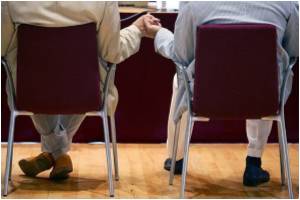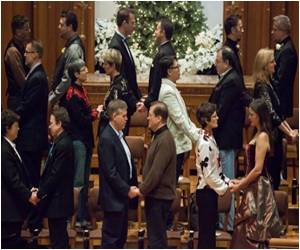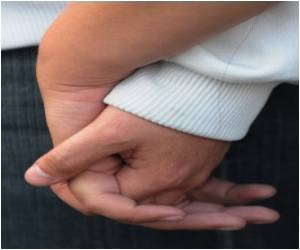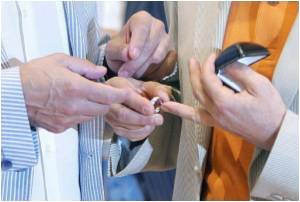Life in medieval Europe was built around three strong pillars. Work. Family. Church.

If anyone asks, they will tell them they are a couple. They don't encounter hostility on a daily basis. But for all that, lesbian life in the backwaters of northern France is not without its complications.
"If an old lady spots the ring on my wedding finger and asks if my husband can repair the cultivator, I choose to tell the truth," Elisabeth, 31, says. "Everyone has a right to be different."
When a youth who attends their local church unleashed a homophobic diatribe on his Facebook page, the women's response was to invite him to their home to talk about it.
He declined but the point had been made, says Elisabeth, an activist with gay Christian group David and Jonathan.
There can be embarrassment when friends or colleagues don't immediately grasp the situation but full-on confrontation is rare in a country where people's private lives are regarded as sacrosanct.
Advertisement
Incidents like that have helped to convince both women that France's Socialist government was right to push through legislation that will result in the country's first gay marriages next month, providing a constitutional challenge fails.
Advertisement
But they also see elements of ignorance and hypocrisy in a debate that has split the country and led to a spike in homophobic incidents, including some severe beatings of gay men on the streets of Paris and attacks on gay bars in Bordeaux and Lille.
"Homosexuality is not a choice. It is not a danger to society, and families with same-sex parents already exist," stresses Elisabeth.
The new law will give Elisabeth and Geraldine, 46, the right to adopt a child together, but the extent of the controversy has cast doubt on whether the government will proceed with promised secondary legislation that would grant lesbians access to IVF treatment.
Elisabeth, who works for a non-governmental organisation that supports small farmers, and Geraldine, a journalist, believe the public discussion of the issues surrounding gay marriage and adoption will have a positive effect on French society over time.
"You have to hope that it will make it easier for the young to come out and that it will all become less of an issue," Elisabeth says.
The women admit to having been surprised that one of their neighbours, a local councillor with whom they are on friendly terms, signed a petition against gay marriage.
But otherwise they have not experienced any fallout from the divisive debate at work or in their community.
A village in their region was the scene of a notorious homophobic attack in 2007 when two lesbians who were in a couple were beaten up, but that was an isolated incident and the perpetrators were brought to justice.
Source-AFP









